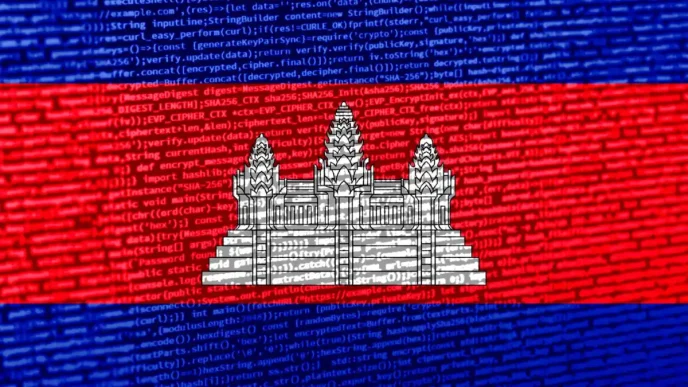In a troubling breach of personal data, the names and addresses of approximately 1,300 motorists in Singapore have been published online, following a ransomware attack on Toppan Next Tech (TNT), a printing vendor contracted by the Traffic Police. The incident, which came to light on July 24, 2025, has raised significant concerns about cybersecurity and the protection of sensitive information in the city-state, known for its stringent data protection laws.
A Ransomware Attack with Wide-Reaching Impact
The breach stems from a ransomware attack on TNT’s systems, first reported on April 1, 2025. According to a joint statement by the Singapore Police Force and the Cyber Security Agency of Singapore (CSA), the personal information of motorists was found online on July 18, though the attack is believed to have occurred months earlier. While only names and addresses—sourced from Traffic Police records—have been confirmed as leaked, there is no evidence that other sensitive data, such as NRIC numbers or traffic violation details, has been circulated.
TNT, tasked with printing and mailing notices to motorists on behalf of the Traffic Police, held a range of personal information, making it a prime target for cybercriminals. Importantly, the police have clarified that their own systems remained secure and were not directly breached. Instead, the vulnerability lay within TNT’s infrastructure, exposing data that had been entrusted to the vendor for operational purposes.
This is not the first time TNT has faced such an incident. The same ransomware attack in April also compromised the data of over 11,000 customers of two major banking clients, DBS Bank and the Bank of China’s Singapore branch. TNT reported the breach to the Personal Data Protection Commission (PDPC) on April 6, but the delayed public disclosure of the motorists’ data leak has sparked questions about the timeliness of communication and accountability in such critical matters.
Broader Implications for Data Security in Singapore
Singapore has long positioned itself as a global leader in technology and governance, with robust frameworks like the Personal Data Protection Act (PDPA) designed to safeguard citizens’ information. However, incidents like the TNT breach highlight the challenges of securing data in an increasingly interconnected digital landscape, especially when third-party vendors are involved. The city-state’s reliance on external service providers for essential functions—ranging from traffic management to election processes—means that vulnerabilities in these partners can have far-reaching consequences.
TNT’s role extended beyond the Traffic Police; the company was also contracted by the Elections Department to print poll cards and ballot papers for the 2025 General Election. While there is no indication that election-related data was compromised, the breadth of TNT’s involvement in sensitive government operations underscores the urgency of bolstering cybersecurity across all levels of public service delivery.
The CSA and police are currently assisting TNT in strengthening its cybersecurity measures to prevent future breaches. However, for many Singaporeans, the incident serves as a stark reminder of the risks associated with digitization, even in a nation renowned for its technological prowess. As personal data becomes an increasingly valuable commodity for malicious actors, the pressure is on both government agencies and private vendors to ensure that robust safeguards are in place.
Impact on Affected Motorists
For the 1,300 individuals whose names and addresses were exposed, the breach represents a direct threat to their privacy. While the leaked information may seem limited compared to more sensitive data like financial details or identification numbers, the publication of personal addresses can still enable targeted harassment, phishing attempts, or other forms of cybercrime. The police have committed to notifying each affected person individually and have urged them to monitor their personal accounts for any suspicious activity. A dedicated hotline (1800-255-0000) and online reporting portal (www.police.gov.sg/i-witness) have been made available for those who notice unusual behavior.
The psychological toll of such breaches should not be underestimated. Knowing that one’s personal information is circulating online can evoke a sense of vulnerability, even if no immediate harm has occurred. In a society where trust in institutions is paramount, incidents like this risk eroding public confidence in the systems designed to protect citizens.
Cybersecurity Challenges in the Region
The TNT ransomware attack is not an isolated event but part of a broader trend of escalating cyber threats across Southeast Asia. As countries in the region digitize their economies and public services, they become prime targets for ransomware and other forms of cyberattacks. Singapore, with its advanced digital infrastructure, is often seen as a testing ground for sophisticated hacking techniques that may later be deployed elsewhere in the region.
According to reports from regional cybersecurity experts, ransomware attacks have surged in recent years, with attackers exploiting vulnerabilities in third-party vendors to gain access to sensitive data. Unlike direct attacks on government systems, which are often heavily fortified, targeting vendors provides a backdoor to valuable information with potentially less resistance. This tactic has been observed in multiple high-profile breaches across the region, where outsourced service providers have become the weak link in otherwise secure chains.
For Singapore, the incident raises critical questions about vendor oversight and accountability. How can the government ensure that third-party contractors adhere to the same rigorous cybersecurity standards as public agencies? Should there be stricter penalties for vendors who fail to protect sensitive data? These are issues that policymakers will likely grapple with in the coming months as they seek to prevent similar breaches from occurring in the future.
The Road Ahead: Strengthening Defenses
As investigations into the TNT breach continue, there is a pressing need for both immediate action and long-term strategy. In the short term, ensuring that affected motorists are adequately supported—through notifications, monitoring assistance, and access to resources—remains a priority. Simultaneously, TNT must work closely with the CSA and police to identify and address the vulnerabilities that allowed the ransomware attack to succeed.
Looking further ahead, this incident could serve as a catalyst for broader reforms in how Singapore manages data security with third-party vendors. Potential measures might include mandatory cybersecurity audits for all government contractors, stricter reporting timelines for breaches, and enhanced penalties for non-compliance with data protection regulations. Public awareness campaigns could also play a role, educating citizens on how to protect themselves in the wake of data leaks and recognize signs of cyber fraud.
At a regional level, Singapore’s experience with the TNT breach could inform collaborative efforts to combat cybercrime across Southeast Asia. Sharing best practices, intelligence on emerging threats, and resources for capacity building could help neighboring countries fortify their own defenses against similar attacks. As digital transformation accelerates in the region, such cooperation will be essential to staying ahead of cybercriminals who operate across borders with impunity.
The exposure of motorists’ data in Singapore is a sobering reminder that even the most advanced systems are not immune to cyber threats. As authorities work to contain the fallout and prevent future incidents, the question remains: will this breach mark a turning point in how the city-state—and the wider region—approaches cybersecurity, or will it be just another cautionary tale in an era of relentless digital risk?
















